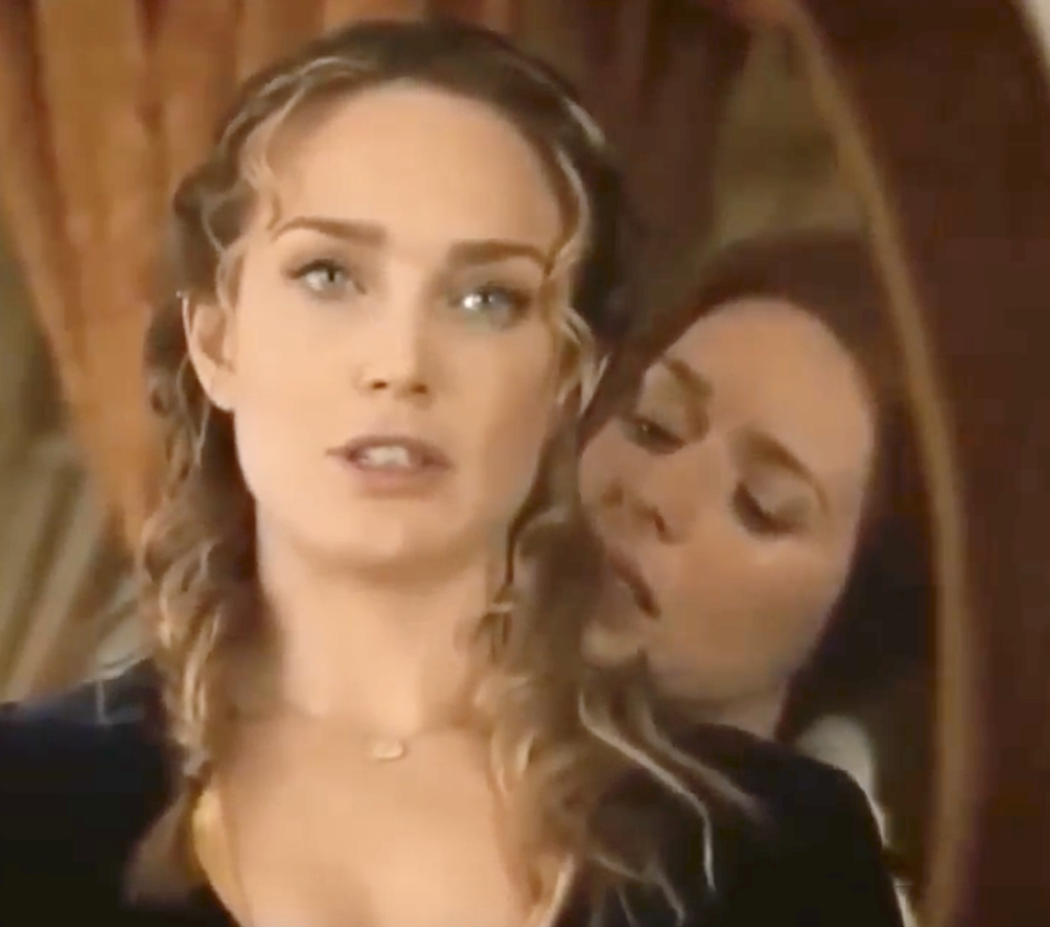By Diane Verrochi
I frequently blame the lack of bi+ representation in media for the fact it took me until well into adulthood to come out to myself, much less anyone else. The only mention of bisexuality in media I can remember from my early teens was a George Carlin joke that didn’t exactly inspire self-reflection of any kind. If anything, the idea that a bisexual person “might as well just walk around with the White Pages under your arm” to keep track of all the phone numbers your hookups gave you was so far removed from my experience, I’d say it contributed to my inability to recognize the word even could apply to me.
The pop culture figure who did inspire that sort of self-reflection was in the realm of science fiction, the omnisexual Captain Jack Harkness from Doctor Who and Torchwood. Not, alas, a bi+ woman, but still the character I have to credit with prompting me not only to embrace my bisexuality but also to be more open and out. Admittedly, considering he flirts with almost everyone sentient, regardless of species, he falls into some of the less favorable stereotypes out there. He does, however, have actual relationships, all while saving Wales from the latest alien threat.
That last bit is important. Often, it seems when we do get an LGBT+ character in media, that is their defining characteristic, often played for comic relief. They’re generally not the hero. That’s not particularly useful representation. In the case of Captain Jack, sure, it’s a big part of his characterization, but it’s not his most defining characteristic. The fact that he can’t die (or, more accurately, can’t stay dead) is the actual big secret, and a secret weapon, not his sexuality, which he’s quite open about.
Wait, he’s bi+, it’s not a big deal, and he saves the world on the regular? That’s huge! In my case, I saw something of myself in him and thought, “I can be myself openly and that doesn’t have to get in the way of making a positive impact in the world.” While I wish I’d had this epiphany much younger, I remain grateful to Russel T. Davies, Steven Moffat, and John Barrowman for creating this character and bringing him to life.
It’s somewhat surprising not to see more bi+ representation a la Captain Jack in the realm of science fiction and fantasy (sf/f). Even the ambisexual aliens in Ursula LeGuin’s The Left Hand of Darkness are disappointingly heterosexual when they actually engage in sexual relationships. It’s as though many writers’ imaginations stutter over the notion of non-monosexual (or even non-heterosexual) orientations, even when inventing completely new worlds and species.
While Harkness has not appeared on Doctor Who in years and Torchwood appears to have finished its run, there are other similar characters emerging, such as the character of Sarah Lance of Arrow and Legends of Tomorrow. (Interesting that Lance, like Harkness, also has a foot in each of two shows.) The character has been shown in sexual relationships with both men and women, but most recently has appeared to be exclusively attracted to women. Caity Lotz, the actress who plays her, has been known to remind people on social media that Lance is, in fact, bisexual. It’s wonderful she does that, but it’s a shame it’s necessary. Viewers do fall into the trap of defining Lance by who she has most recently flirted with or seduced, something made more likely by the relative dearth of bi+ representation in the genre.
Still, had Sarah Lance been a character I watched on television in my teens, I like to think I’d have figured myself out a bit earlier. I hope there are young women watching her and recognizing something of themselves in her. I hope their takeaway is that they can be themselves, openly, and make their mark on the world, possibly even become tomorrow’s legends.
Diane Verrochi is an Assistant Professor of Nursing at the University of Hartford where her colleagues are frequently bemused by the sf/f aesthetic of her office.
Featured Image: Sara Lance, left. in Legends of Tomorrow

